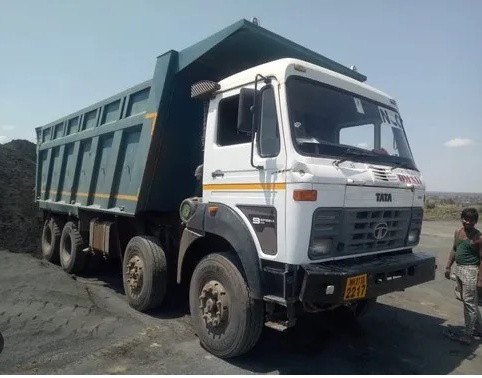In the dynamic realm of construction, efficiency and precision are paramount. One crucial element that plays a pivotal role in ensuring smooth operations is the use of tipper trucks. These versatile vehicles are indispensable in transporting and unloading various materials, such as gravel, sand, or debris, at construction sites. In the West Midlands, where construction projects abound, understanding the nuances of tipper hire is essential for navigating the industry successfully. This comprehensive guide aims to provide insights into the key aspects of tipper hire, from understanding the types of tippers available to optimizing their usage for maximum productivity.
Types of Tippers
Before delving into tipper hire specifics, it's imperative to familiarize oneself with the different types of tippers. Understanding the variations will enable you to choose the most suitable option for your construction needs.
-
Standard Tippers: These are the most common type of tippers, featuring a hydraulic system that facilitates easy tipping of the load. Standard tippers are ideal for transporting loose materials and are widely used in various construction applications.
-
Articulated Tippers: With an additional pivot point, articulated tippers provide enhanced maneuverability. This makes them suitable for navigating tight spaces, a valuable trait in urban construction sites where space is often limited.
-
Ejector Tippers: The ejector mechanism in these tippers allows for the automatic unloading of materials. This can significantly speed up the unloading process, making ejector tippers advantageous for projects with tight deadlines.
-
Grab Lorries: Equipped with a hydraulic grab arm, these tippers are ideal for efficiently loading and unloading materials such as bricks, concrete, and other bulky items. Grab lorries are particularly useful in demolition and excavation projects.
Considerations for Tipper Hire in the West Midlands
Now that we've explored the various types of tippers, it's time to delve into the key considerations for tipper hire in West Midlands.
-
Project Size and Scope: Assess the scale and requirements of your construction project. For larger projects with extensive material transportation needs, standard tippers or articulated tippers might be more suitable. Smaller projects or those with limited space may benefit from the agility of grab lorries.
-
Regulatory Compliance: Ensure that the tipper hire company adheres to all relevant regulations and safety standards. This includes checking for proper licensing, insurance, and compliance with environmental guidelines. It's crucial to prioritize safety and legal compliance to avoid potential complications during the project.
-
Cost and Budgeting: Obtain detailed quotes from multiple tipper hire companies to compare costs. Consider not only the rental fees but also additional expenses such as fuel, maintenance, and any potential penalties for exceeding agreed-upon terms. Having a clear understanding of the overall costs will help in budgeting effectively.
-
Maintenance and Condition of Tippers: Inspect the condition of the tippers before finalizing the hire. Well-maintained vehicles are less likely to experience breakdowns, ensuring a smoother workflow. Inquire about the maintenance practices of the tipper hire company to ascertain the reliability of their fleet.
-
Duration of Hire: Clearly define the duration for which you require the tipper. Some projects may need a short-term hire, while others might benefit from a long-term arrangement. Discuss the flexibility of the hire terms with the company to align them with your project timeline.
Optimizing Tipper Usage for Maximum Productivity
Once you've selected the appropriate tipper for your project, it's crucial to optimize its usage for maximum productivity. Consider the following tips:
-
Efficient Loading and Unloading: Train your operators to load and unload materials efficiently. Proper training can significantly reduce the time spent on these processes, increasing overall productivity.
-
Route Planning: Plan the transportation routes carefully to minimize travel time and fuel consumption. Efficient route planning can also help avoid congested areas and potential delays.
-
Regular Maintenance Checks: Conduct regular maintenance checks on the tipper to identify and address any issues promptly. This proactive approach can prevent breakdowns and ensure the continuous operation of the vehicle.
-
Communication and Coordination: Foster clear communication and coordination between the tipper operators and other construction personnel. This will help streamline operations and prevent unnecessary delays.
Conclusion
In the bustling construction landscape of the West Midlands, navigating tipper hire successfully requires a strategic approach. By understanding the types of tippers available, considering key factors in the hiring process, and optimizing tipper usage, construction projects can achieve heightened efficiency and productivity. This guide serves as a roadmap for industry professionals seeking to make informed decisions in tipper hire, contributing to the seamless execution of construction endeavors in the dynamic West Midlands region.


No comments yet